The big interview: Luis Enrique – "I’d like to manage in England at some point – the fans are faithful"
Did Bobby Robson ever learn his name? Is he a secret Celtic supporter? And why didn't he receive a pig's head like Figo?!
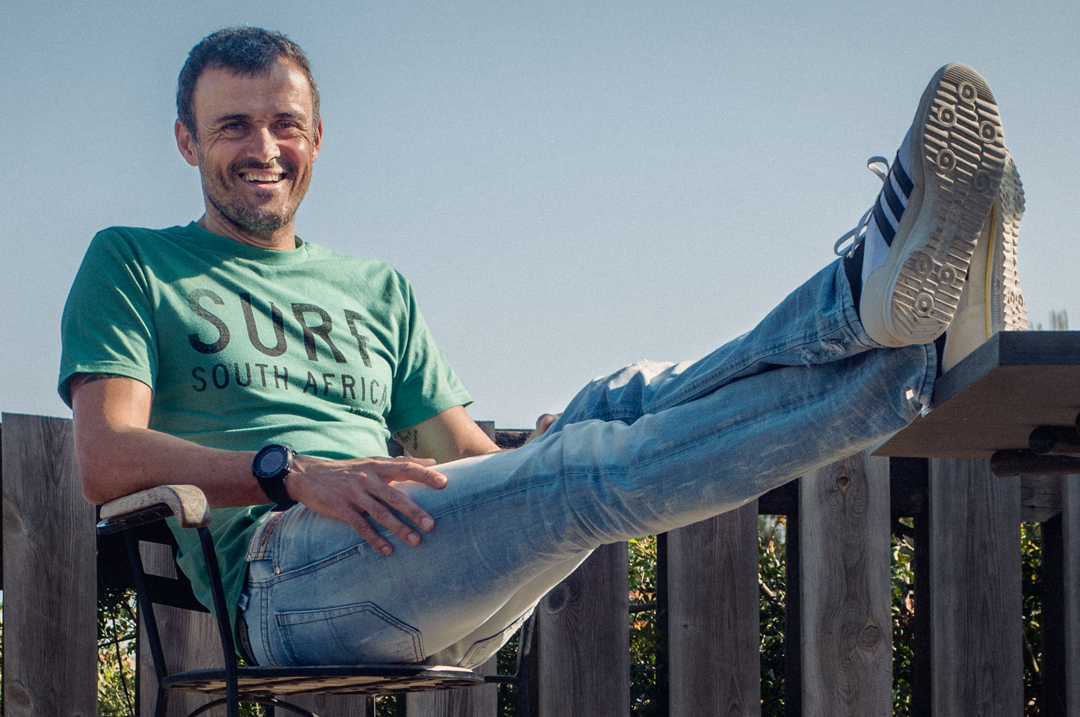
Enrique has a prickly relationship with the media – he feels that if he speaks to one newspaper then he’ll have to speak to them all – but he’s friendly from the minute FourFourTwo arrives at his house in October 2013.
Along the way to the bar, he points out the houses of current Barça stars, tells us that he’s been listening to podcasts in English to improve his already-passable lingua franca. A couple of cyclists pass by on expensive carbon road bikes. Still an ultra-fit athlete who competes in gruelling ironman races, he gives the riders a knowing nod.
Full name: Luis Enrique Martinez Garcia
Date of birth: 08/05/1970
Height: 5ft 11in
Position: Attacking midfielder
Place of birth: Gijon, Spain
Clubs: 1988-91 Sporting Gijon 36 apps (14 goals), 1991-96 Real Madrid 157 (15), 1996-2004 Barcelona 207 (73)
International career: 1991-2002 Spain 63 (12)
Honours:La Liga 1995, 1998, 1999 Copa del Rey 1993, 1997, 1998 Supercopa da Espana 1993, 1996 UEFA Cup Winners' Cup 1997 UEFA Super Cup 1997 Summer Olympics 1992
When we sit down, the Asturian is welcoming, animated, enthusiastic and, 90 minutes after starting, is still talking with the energy that has seen him compete in several marathons and enjoy a stellar career with Sporting Gijon, Real Madrid and Barcelona. Later, he was Pep Guardiola’s replacement at Barça B, then spent a year at Roma before taking the reins at Celta Vigo in June 2013.
What’s your earliest footballing memory? Were you always a sporty child?
Rupert Foster, Surrey
I was a very sporty child. Earliest memory? Spain 12-1 Malta. Spain had to win by 10 to reach the 1984 European Championship. I watched on television in Gijon. My first memory at a game was queuing up oustide El Molinon [Sporting’s stadium] to see Sporting vs Cadiz, aged 10. I remember seeing the grass and how well kept it was, how perfect the lines were. I was inside the stadium 90 minutes before the game, watching the grass with my brother, who is 11 months older. My father wasn’t a football man. I loved going to games. I’d stand at the back of the ultras and listen to their songs. I took a flag made by my mother. There’s a photo of me in a newspaper sitting on the fence with my flag – though I had to hide it from my mother because I was standing near the ultras and she wouldn’t like that.
You’re well known as a passionate guy. Were you the same as a child?
Jackie Robertson, Plymouth
I’ve always been enthusiastic about whatever I’ve done. I mark out challenges in life. I was lucky that I was able to dedicate my life to what I most loved: as a fan, a player and now as a manager. It must be terrible to work in something that you don’t like. Because I am so passionate, it’s easy to empathise with players and for them to believe in me.
I had to hide the photo from my mother because I was standing near the ultras and she wouldn’t like that
You began your football career playing futsal. How did that improve your skills as a young age?
Ryan Moore, London
Here in Catalonia the kids play Futbol 7. In Asturias it’s futbol sala, futsal with five players. Because it’s a reduced side, you develop different characteristics. It’s not about strength, but technique. It really helped develop my football for three or four seasons. Starting 11-a-side was totally different, the goals seemed huge – the distances too. I didn’t have the strength when I first started 11-a-side. Futbol sala is a better way to develop technique. You can work on strength later.
Where does your nickname Lucho come from?
Mike Monaghan, Lincoln
Lucho Flores was a Mexican player who played for Sporting for two or three seasons. I was there as a 14-year-old, a forward. They called me Lucho. I didn’t mind, he was a good player.
Get FourFourTwo Newsletter
The best features, fun and footballing quizzes, straight to your inbox every week.
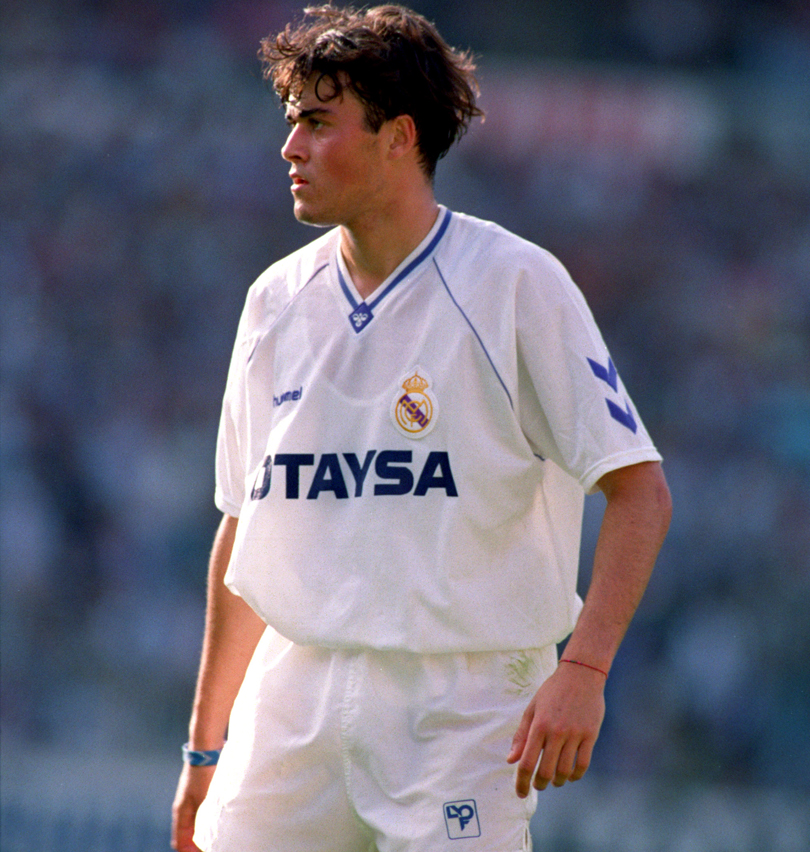
How important a role did Sporting Gijon play in your upbringing?
Dani Rodrigo, Madrid
A lot, but Sporting didn’t want me at 14 and I had to leave for another team. I went back at 17, played for Sporting B for a year and the first team for a year-and-a-half. I would have been better staying another year and developing at a club with a local perspective, not the pressure of winning every game like you get at Barça or Madrid.
Jose Mourinho make it as a top-level coach? Never. Never! Not even Jose thought that
What was you first impression of your Sporting Gijon team-mate Kevin Moran?
Anthony Shaw, Oldham
Respect. I was young. He was an international with many games in the World Cup. He was very correct, very noble – a true professional. I never saw him make a dirty tackle. He only played a year or two, but he was very well respected in Gijon.
Why did you join Real Madrid? What was it like to play with Laudrup, Butragueno, Raul, Hierro?
Morris Guerrero, Arizona
On a personal level, you never think that a big club will come for you. I didn’t dream of Madrid after a year-and-a-half at Sporting, but Sporting needed to sell for money. It happened quickly and I signed a five-year contract. The players were big names but normal people who have ability to play football. It was easy to play with them because they were so good, but I went as a goalscorer.
Then they put me in midfield – I’d never played there before. What was I supposed to do? It was difficult. Then to full-back. Normally, a player would leave in these circumstances. Madrid wanted to loan me to Sevilla, then they decided I could stay – and I stayed five years! I adapted to the position and did what my trainer wanted me to do.
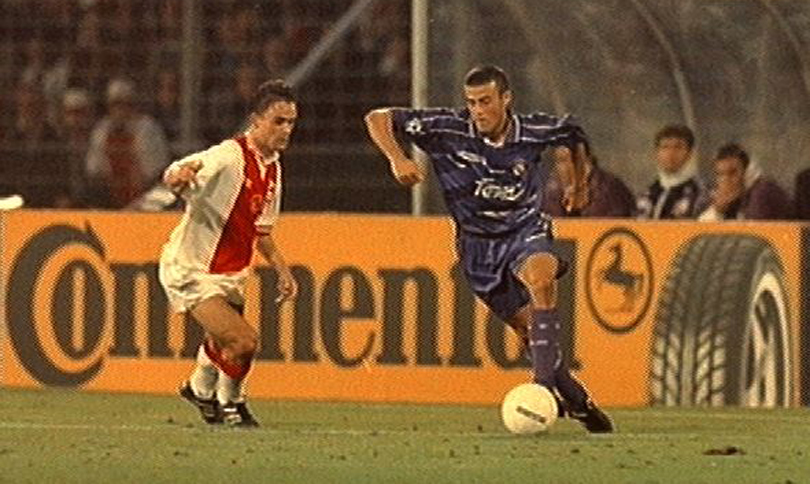
In an old version of Championship Manager, you were able to play in every outfield position. Which was your favourite?
James Cokeham, Goole
Forward. It didn’t matter where up front, but up front. I wasn’t a targetman, more a player who moves around as I’m not big enough to be a targetman. When I got to Barcelona, my position was to play off the main striker. The big man, Ronaldo, would be marked so it would be easier for me or Philip Cocu to find space and score. Bobby Robson would push me forward during games for a goal. I got my nose for goalscoring back after my time at Madrid.
Madrid wanted to loan me to Sevilla. Then they decided I could stay, and I stayed five years
What do you remember of Mauro Tassotti’s elbow at USA 94? Did you swing at him after the game? Did he ever apologise?
Paul Montgomery, via Twitter
It’s the question I’m most asked. Everybody remembers it. Not for the elbow itself, but for the fact that we were knocked out. That was the worst thing for us. We went to watch Nigeria vs Italy a few days before and Nigeria were the better team. Italy had a great side with Maldini and Baggio, but the Italian players had cramp, they looked exhausted. We left the game with Nigeria winning but Italy equalised and won on penalties. It didn’t matter to us, though – we thought the Italians would be dead, we’d seen their cramps. They were not dead.
After that incident, FIFA put the rule that you can’t play while bleeding. Then, we had to play on. It was an injustice, I couldn’t continue on the pitch but the man who caused me the damage could. These things happen in football and I’ve done a few misdemeanors in my time as well, just not in the World Cup. Tassotti apologised. Not directly after the game when there was way too much bad feeling, but later. I’ve seen him since and I have no problem with him.
There was some serious talent in the Spain teams you played in. Why didn’t you do better at major championships? What’s the main difference between then and now?
Chris Katopis, via Facebook
We had no luck. Sincerely. We had no luck on any of the occasions. Tassotti in ’94, the illegal goal against South Korea, penalties in Euro 96, the Morientes goal which wasn’t given in 2002. Spain won the European Championship on penalties. You need luck. Manchester United vs Bayern Munich. You need luck, especially when the games are so tight – and we had none.
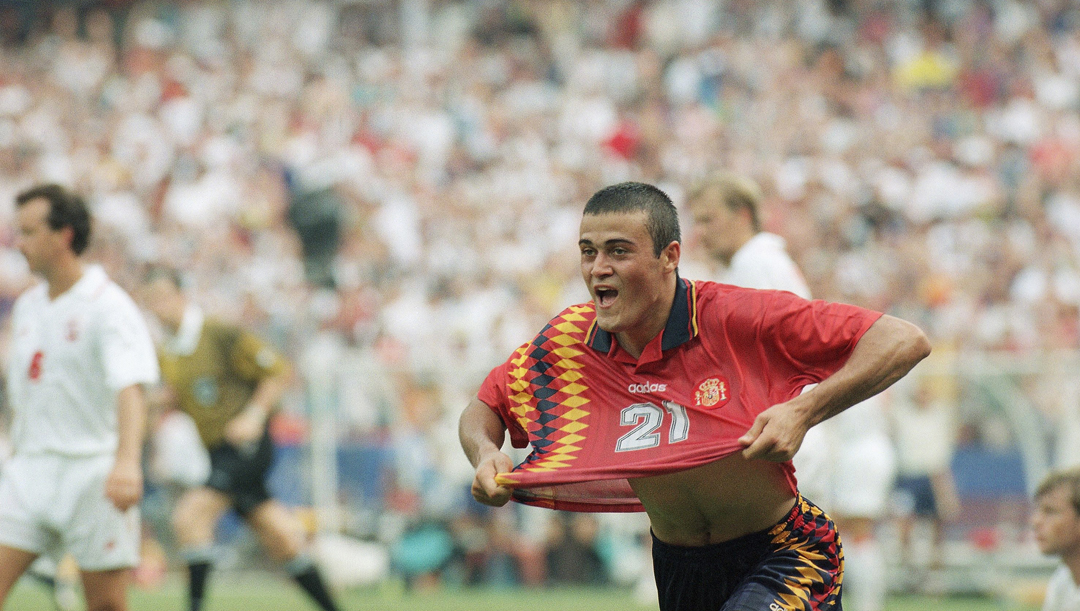
You were an important player at the Bernabeu, so why did you move from Real Madrid to Barcelona? How difficult was the change?
Juan Alcocer, via Twitter
It wasn’t, it was easy. I signed a five-year contract with Madrid and I played for five years. I honoured my contract, I didn’t break it. I had offers from Italy and Barça; none from England. I always wanted to play in England but never had the chance to do it. There were no problems for me in the Camp Nou dressing room. I knew the players from the national team. I felt welcomed after 10 minutes.
I had offers from Italy and Barça. None from England. I always wanted to play in England but never had the chance to do it
How good was Ronaldo in his one Camp Nou season? Did he enjoy a night out even then? Did you get into any scrapes?
Rob Bostock, Bristol
I’d seen him on television at PSV and thought ‘wow’. Then he came to Barcelona. He’s the most spectacular player I’ve ever seen. He did things I’d never seen before. We’re now used to seeing Messi dribble past six players, but not then. He was strong, a beast – but a kid, as well. He was typically Brazilian, doing the samba in the dressing room. Him and Giovanni would make music with a waste paper bin. They danced.
I love that atmosphere, the group feeling that Brazilians have. I like to have music in the dressing room of the teams I manage. Football is a party not a prison, but I accept that while some players need music, others need concentration. Ronaldinho loved the music too. In fact, Rivaldo was the only Brazilian who didn’t like music, the only one. A great player, though. With Ronaldo, he’d listen to Brazilian music in the day and have a lot of fun. As for the nights…
How much did it help that Bobby Robson played you as an attacker in your first season at Barcelona? What was Bobby like, as a coach?
Ed Shelton, County Durham
There was Robson the trainer and Robson the man. He worked with Mourinho. The first time Robson walked into the dressing room, he looked at me and Pizzi, then turned to Mourinho and said: ‘Who are they?' We were internationals! After that I had a great relationship with him. He was a kind person. You could get close to him, he had huge experience and knew how players felt. He always played me, as a full-back, midfielder or forward. I didn’t mind. We lost the league because we didn’t have Ronaldo or Giovanni at the end, but we won the cup and the Super Cup. It was difficult at Barcelona because Cruyff had left and the fans didn’t want him to go. We won one game 6-0 and the crowd still whistled at us. How can you win 6-0 and get whistled?
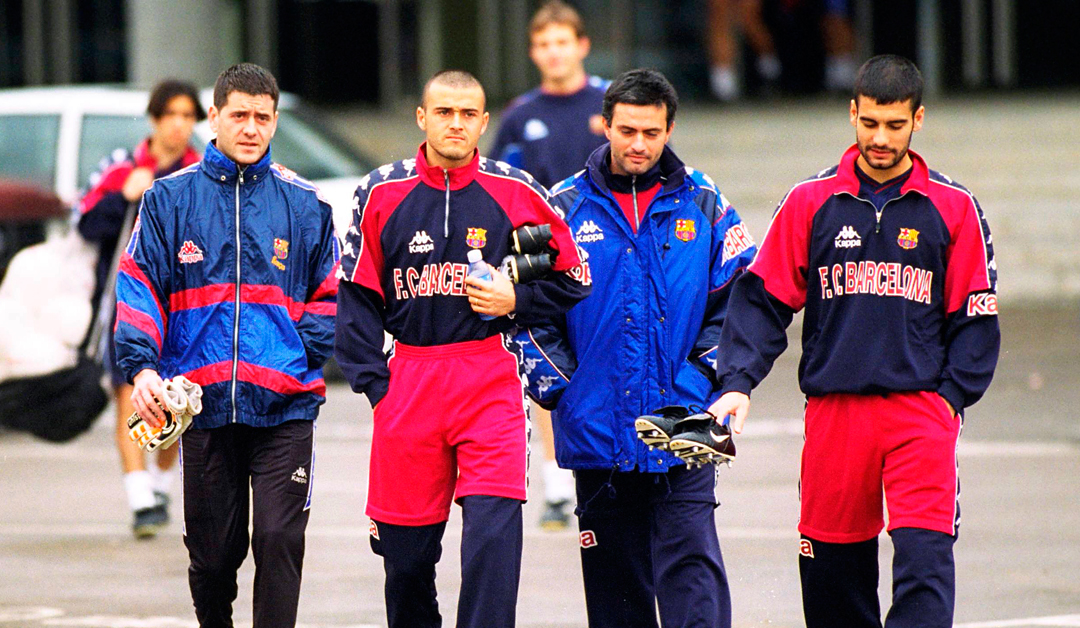
What were your impressions of Jose Mourinho when he was coach under Robson and Louis van Gaal? Did you think he’d make it as a top-level coach?
Jordi Baldoma, Reus
Never. Never! Not even he thought that. He obviously knew about football and spoke well, but he wasn’t the Special One yet. Robson went but Mourinho stayed. He had a good relationship with [Louis] Van Gaal and Mourinho was very clear with us. I liked him.
I’ll never forget your goal against Borussia Dortmund in the 1997 European Super Cup. You won the ball from a defensive corner and sprinted up the pitch to score a left-foot volley. Was that your best goal?
Adria Balaguer, Badalona
I don’t think so, but it was a nice goal. I dribbled past one and then chipped the ball over the keeper. One of my favourites was against Arsenal at Wembley. I also scored a goal at Old Trafford, a penalty in the 3-3. I only scored two penalties in my career. My wife was pregnant at the time; she saw me pick up the ball on television and I gave her a big shock. I love English stadiums, the fans are faithful. I saw Newcastle fans applauding after a relegation. If that happened in Spain they would be waiting with sticks.
After I finished playing, I went to both clubs who sing You’ll Never Walk Alone. I saw Liverpool vs Everton at Anfield. I’d played there twice, touched the This Is Anfield sign. Then I went back as a fan. Benitez was manager and Luis Garcia got me tickets. Were we recognised? Only once.
And I went to Celtic vs Milan at Elland Road? [pauses] No, Parkhead. Celtic is Parkhead. I went with friends and stood with the fans. I wore the scarf. I wanted to hear You’ll Never Walk Alone before the game, to feel it as a fan. What a great atmosphere. I love the concept of following your team.
At Celtic I wore the scarf. I wanted to hear You’ll Never Walk Alone before the game, to feel it as a fan
What was the craziest thing that happened to you in a Clasico? Any pigs’ heads?!
Robbie Weir, via Facebook
I played in a lot of Clasicos, they’re great to play in. Van Gaal said: "The team who will win will be the team who will control their emotions." How many times have we seen teams lose their heads and someone get sent off? I like the Clasicos, from getting off the team coach to the stadium. Even the warm-up was different... because you didn’t need one. You were already up for it. I could have started any of them without a stretch.
As for the pig’s head game, I saw the Barça fans angrier than I’ve ever seen before. They’re usually reserved. They go to Camp Nou to see a spectacle. The players said before: ‘We’re going to win this game, we have to win it’. It was strange that they only threw the pig’s head; I thought they might throw the whole pig! I’m a friend of Figo’s, but they took Barça's best player in his best moment. It would be like City taking Ryan Giggs in the best moment of his career, or Everton taking Steven Gerrard. It was a double action, to weaken the opponents and strengthen their own team. Luis suffered. He’s human. You could see in his face that he was suffering.
I didn't need to warm up for the clasico. I was so up for it, I could start without a stretch
I’ve read that a Real Madrid ultra once made a whack-a-mole style game, with you replacing the mole. Is this true, and what did you make of it?
Ryan Hermann, via email
[Laughs]. I don’t know if that’s true or not!
What was the reaction to Luis Figo’s departure in the dressing room? Did you speak afterwards?
John Barrington, Reading
I knew that he was going. I was good friends with him. We’d been to Sardinia on holiday with him and his wife. He told me himself before the other players. It was his decision, he was entitled to make it. People think that footballers think differently, but we don’t. We’re not Martians. We’re the same as other people. True, we don’t have economic problems but we have the same problems as other people. If you don’t have economic problems you have other problems. In every dressing room I’ve found worthwhile people, and Luis was a good person.
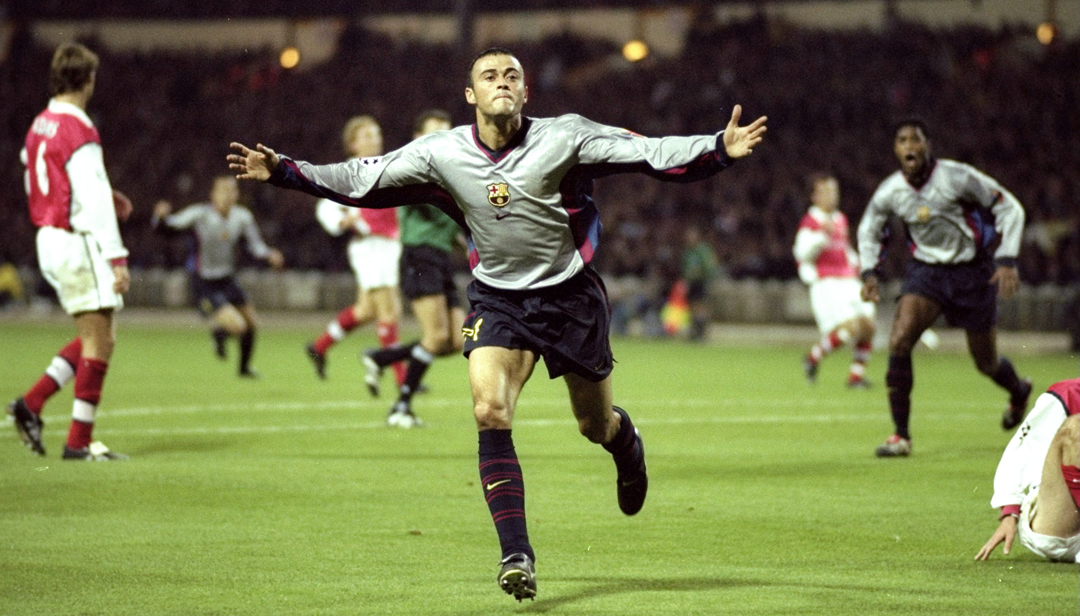
Who would win: Barcelona’s 1999 Liga-winning team of you, Rivaldo and Luis Figo, or the current (2013) vintage?
Jamie McDonald, Leeds
This team, without a doubt. They have Messi. The trouble is that we’ve seen so much of Messi that we think he’s normal. I can’t understand how a player has got to that level. The team are trained better, tactically they’re better, psychologically they’re better. And Messi is the reference, but he’s surrounded by top-quality players who make him better. The level Pep Guardiola’s team reached has never been reached before. They reached such a level that all the other teams have to drop back and defend. They have 65-70% of the ball. Maybe Arrigo Sacchi’s Milan are the only team who have come close to them, but even they can’t compare.
Footballers don’t have economic problems but we have the same problems as other people. If you don’t have economic problems you have other problems
Is it true Andres Iniesta got lost trying to find the dressing room on his first day training with the first team, and you were sent to find him? What do you remember of that training session and Iniesta in general?
Jaume Pujol, Barcelona
Kind of. He went to the door of the stadium and was standing with the second team. I told the doorman to bring Iniesta down to our dressing room. I introduced him to the other players in a manner which I would have liked to have been introduced had I been him. I didn’t really know who he was, but that’s what should happen for any new player. I remember Kevin Moran shaking my hand.
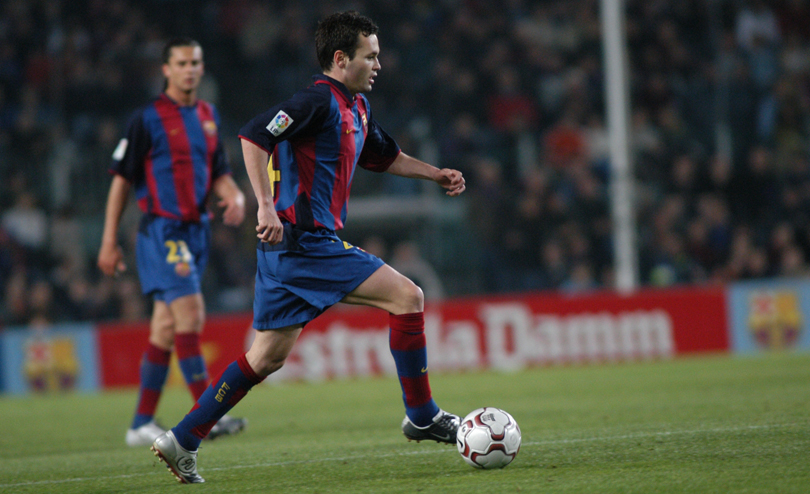
Iniesta is like Harry Potter. One, two, three and whoosh… he’s past the player. It’s like he has a magic wand
I saw Iniesta, pale skin, slight. But oh, what a player. A lot of players don’t realise that Iniesta and Xavi had lots of games on the bench. Only Messi walked into the first team. Young players have to understand, adapt and learn. They have to learn little by little otherwise there is too much pressure on them. After Messi, Iniesta’s the most inventive player in Spanish football at the moment. He’s like Harry Potter. One, two, three and whoosh... he’s past the player. It’s like he has a magic wand.
You’ve played against some great players, but who was the toughest opponent of your career?
Gregg Morrison, via email
Too many, I played against lots. Ronaldo and Zidane. Rivaldo, Luis Figo. Romario, Laudrup. I was Messi’s captain when he made his debut in a friendly vs Portugal. He was 16. He jumped categories. It’s not normal that a player does that, but it was right for him and Guardiola was right for him. Under Guardiola, Messi’s perception of the game really improved, his vision of the game too.
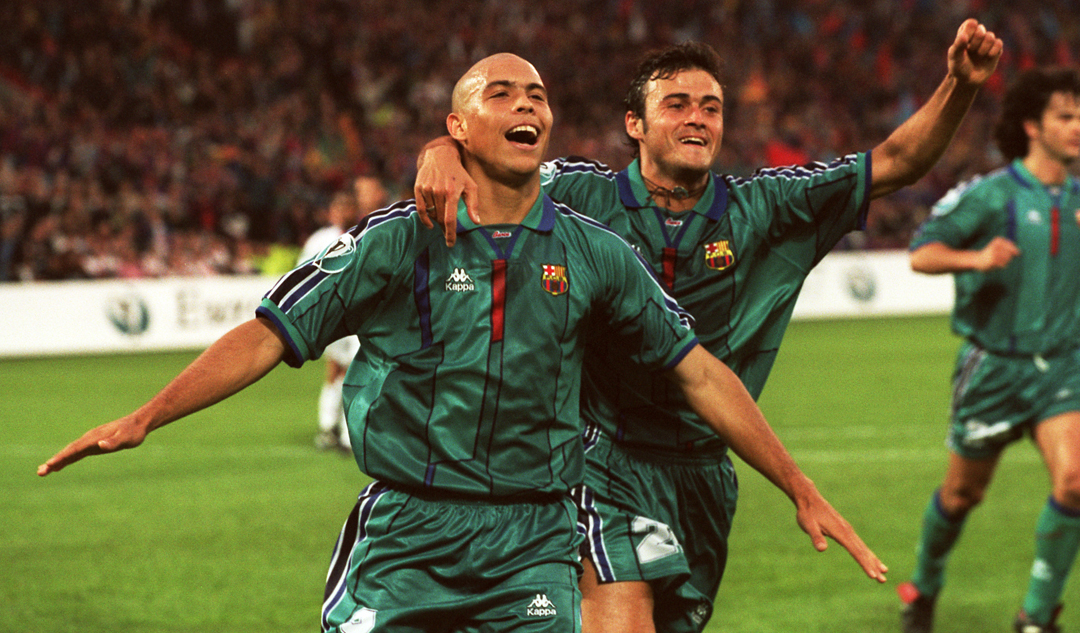
Vicente del Bosque, Bobby Robson, Louis van Gaal, Jorge Valdano. You’ve played under some great coaches. Who influenced you most? Who did you most learn from? Is Jorge Valdano really the Philosopher of Football?
Lee McDonaugh, Perth
You learn something from everyone, even the bad coaches. Because they tell you something and you think: ‘I’ll never do that in the future.’ It’s far better to learn positive and interesting things, though. The trainer I learned most from about the field of play was Van Gaal, even though he’s the one I’ve had the most confrontations with – well, disagreements. He’s got an obsession with work ethic, the way he plans. Maybe I preferred a lighter style to his. As well as the ones you mentioned, I had Beenhakker, Serra Ferrer, Camacho and Javier Clemente. I learned something from them all.
The trainer I learned most from about the field of play was Van Gaal, even though he’s the one I’ve had the most confrontations with
Does it give you pride to see your Barça B side doing well under Eusebio Sacristan? Who stood out from that team?
Matt Nicolas, Manchester
Of course it does. I worked closely with those players. Gerard Deulofeu (now at Everton) is the standout. He’s got speed, he can beat a player and score goals. Sergi Roberto, Rafinha, Luis Alberto (now at Liverpool). It’s not only the first team which has really good players, there’s the work in the background and a lot of very good players coming through.
How would you sum up your time at Roma? How is Serie A different to La Liga, as a coach?
Matteo Cassina, via Twitter
Fine. It was a unique experience, a positive one. I was only there a year. I had another year on the contract but didn’t feel that I had any more to give them. It let me see other players and other ways of playing the game. In Serie A, they wait to see how the opposition play, then they form their tactics. In Spain, the idea is to control the ball, but a lot depends on the players you have. The way of interpreting the game reflects the culture.
I had another year on the contract but didn’t feel that I had any more to give Roma. It let me see other players and other ways of playing the game
In England, I like the way Brendan Rodgers interprets the game, how he gets the team playing together, though I know it has been difficult for him in his first year at Liverpool. I like teams which repeat their style, clubs that are synonymous with one style.
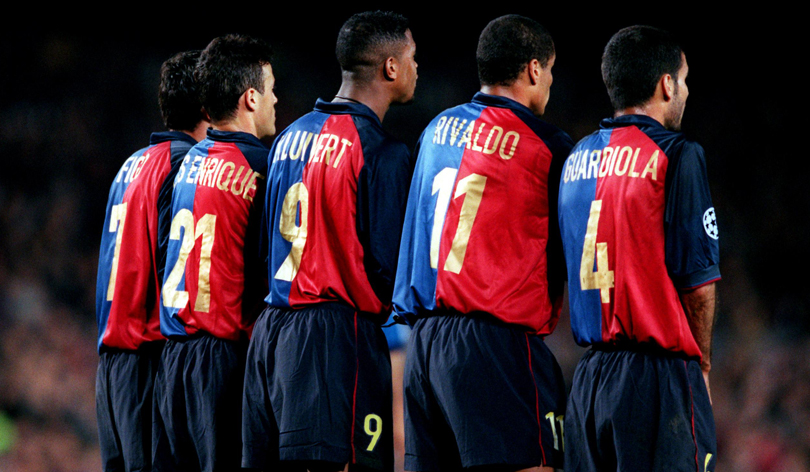
San Miguel, Estrella or Asturian cider? Also, do you have any tips on how to pour cider the Asturian way?
Hannah Patel, via email
Cider. It’s the typical drink of Asturius, with four to five per cent alcohol. You need to pour it correctly, from a good height, the bubbles hit the side of the glass, splitting the good air and the bad air. You down it in one and all share the same glass, it’s a social drink, one to share. Four or five of those glasses one after another and you’re gone.
You were linked to the Reading job a while back. Any truth to this? Could you ever see yourself managing in England?
Josh Chamberlain, Reading
I was cycling in South Africa when I got a call about Reading. It was gossip, I never spoke to them. I’d like to manage in England at some point. My wife wouldn’t like the weather, she’s from Barcelona and likes the sun. It would depend on the team and the football they played.
Four or five of those glasses one after another other [of Asturian cider] and you’re gone
How did you get into your triathlons? Which is harder: facing Real Madrid as an ex-Blanco, or an Ironman?
Steve Bloomfield, Derby
A Clasico. Nobody is trying to stop you in an Ironman – though I only did it as an amateur, not a professional. People don’t understand that football can be a really hard game, mentally and physically. In the World Cup you are playing every three days. That’s really hard, mentally and physically.
Pal's poser
You had a real knack of scoring in Clasicos. Which goal gave you most pleasure?
Miguel Angel Nadal, former Barcelona team-mate
Without a doubt, the goal in the 3-2 victory in the Bernabeu (1997/98). I scored second to make it 2-1. Madrid had a great team: Mijatovic, Suker, Roberto Carlos. My celebration was passionate and effusive. My team-mates jumped on top of me, the crowd were throwing things at me. At that time, Barça hardly ever won in the Bernabeu. It was a really important game for me. We’d lost the previous game 2-0 and I had an overhead kick which hit the bar, so I loved that moment of scoring.
Portrait: Victor M Fernandez.
This interview first appeared in the October 2013 issue of FourFourTwo. Subscribe!

Andy Mitten is Editor at Large of FourFourTwo, interviewing the likes of Lionel Messi, Eric Cantona, Sir Alex Ferguson and Diego Maradona for the magazine. He also founded and is editor of United We Stand, the Manchester United fanzine, and contributes to a number of publications, including GQ, the BBC and The Athletic.
